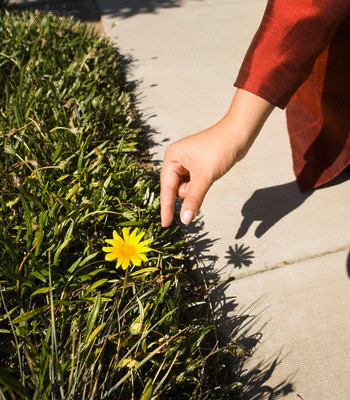How To Stop Feeling Bad
Why do we feel bad?
It’s a good question.
An easy answer would be “because bad stuff happens to us”, but what for one person would be a disaster, someone else might barely notice.
So what’s actually going on here?
In a nutshell?
We beat ourselves up.
That little voice in our heads giving us shit. Yep, it’s our ego.
No big surprise there then. So what can we do about it?
Well, stop complaining is certainly a good start, but there’s more to it than just that.
For example, how many different ways are there of beating ourselves up?
Regrets, disappointments, undesirable events, worrying about the future, things we dislike about ourselves, or (even sillier) things we dislike about others (“Why oh why did I choose a husband like this?”) That’s the craziest of all. Resentment about someone else is like drinking poison & expecting the other person to get sick.
Notice that all of these things are either in the past or in the future? Yep, that’s not a surprise. More on that later.
A good rule of thumb though? Any time we say something to ourselves that makes us feel worse, that’s beating ourselves up, in one way or another.
Ok, so we’ve mapped out the field, how to deal to this behaviour? How to stop it?
The Reductionist Method
Here’s one method that has worked wonders for me.
Every morning I sat down & brainstormed a few lists “Things I disapprove about myself”, “Regrets”, “Disappointments”, “Worries” etc. (You can use any phrasing that resonates). Next, I just worked my way down each list I’d made, healing each item in turn. The whole thing would take, 10 maybe 15 minutes tops.

pic by gwilmore
What I noticed was, each day the lists got shorter, & the items I’d healed didn’t come back (or they looked like they came back, but were actually subtly different – i.e. different sub-aspects of a larger issue).
After a few days, I couldn’t think of anything for any of the lists. Oh, & I also wasn’t thinking any of those crappy thoughts about myself any more.
The fewer negative thoughts you have, the better you’ll feel. It’s not rocket science.
Of course, when you’re making these lists, the things that come up first will be the things you’re thinking most often. Those at the top of the list will be the loudest complaints. As you clear those out, you’ll naturally work deeper & quieter, till eventually you’re clearing out more & more subtle negativity. It’s a great, natural way to clear through internal noise in a way that gets you the greatest benefits immediately, but gets more deeply powerful the longer you continue.
It’s also good just to do it a little bit each day. Often we need a good night’s sleep to fully process & clear things out of our systems.
How to heal this negative self-talk? Well, you can use whatever tool appeals to you. Some of the things that came up I used EFT on, some I used the release technique (aka the Sedona Method), & some I used Reiki. I just trusted my intuition & used what felt right (mostly releasing).
Our ego has a thousand ways of making us feel bad. Constantly nattering at us, trying to bring us down. This is just a good, time effective way I’ve found to proactively clear out a huge chunk of that crap. Each day getting clearer, lighter & happier.
The Holistic Method
Ok, so, remember how all this negative self talk was either in the future, or in the past? Well, that’s not an accident.
Remember Eckhart Tolle? Well, he’s way ahead of me on this one. See, if you’re the kind of person for whom a methodical approach is just not for you, well, here’s what he recommends.
Get yourself completely “in the present.” Just be here now.
It’s that simple. Let go of all the noise in your head. Stop thinking your thoughts. If they come up, simply let them go.

pic by savannahgrandfather
The important thing to remember is – you are not your thoughts. It’s your mind thinking them, not you. Which means you have a choice, seriously, whether you want to keep thinking them or not. As with all things, you always have a choice.
Same thing with any feelings that come up. Just observe them, but let them go too.
This way, you stay 100% in the present moment. You can still be going about your day, doing whatever, but any thoughts & feelings that come up from the past or about the future, just let them drift off.
Now, there’s a couple of interesting things about this. Firstly, if you genuinely do welcome up (without attachment) any thoughts or feelings you have, & let go of them fully, they won’t come back. (Very loosely, this is how you release).
Be gentle with yourself though, because one large issue can often have a ton of little sub-issues to it that may all need to be cleared. It may seem like you’re making no progress, but just keep letting go, keep letting go. Pretty soon you’ll start to see the difference.
Secondly, the more you can hold yourself in that present moment, the more junk will naturally come up. Why? Because being in that state holds you in a very specific (very powerful) state of vibration. Much like shaking a dirty glass of water, anything counter to that vibration will float to the top. Of course, the important thing is just to keep letting go of everything that comes up. You feel bad? Great! Let it go. Nasty thoughts or memories? Wonderful! Let those go too. They’re only coming up because they’re not in accordance with the person you’re becoming, with that powerful “Now” vibration that you’re holding.
It’s all good stuff.
Plus, if you’re truly present? Well, it’s feels great. Best feeling in the world. So that’s a nice bonus too.
Oh, & there’s nothing saying you can’t use both methods – making lists and being present. Every little bit helps. As Buddha said, “There are many fingers pointing at the moon, but only one moon.”





